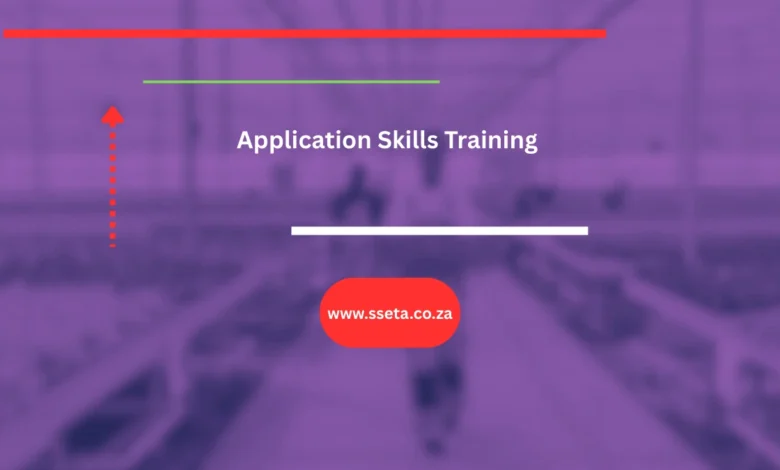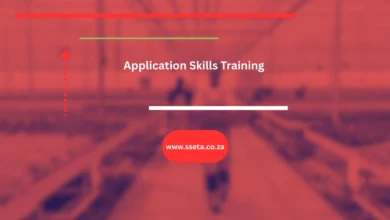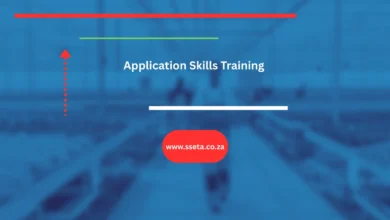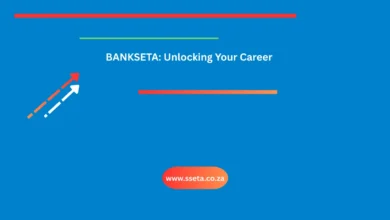SSETA Data Science Skills In-Training Programme 2025: A Complete Guide to Building Your Future in South African Tech

SSETA Data Science Skills In-Training Programme 2025, The digital economy is no longer a far-off dream—it’s here, shaping industries and transforming how we work, learn, and live. At the center of this revolution lies data science, a field that helps businesses, governments, and communities make smarter, faster, and more impactful decisions.
In South Africa, the demand for skilled data professionals is at an all-time high. To bridge this gap, the Services SETA (SSETA) has introduced the Data Science Skills In-Training Programme 2025, designed to empower a new generation of data experts.
This comprehensive guide explores everything you need to know about the programme—objectives, benefits, application steps, skills covered, real-world applications, and how it can shape your career.
Why Data Science Matters in South Africa Today
Data is often called “the new gold,” and in South Africa, this couldn’t be more true. From banks preventing fraud, to farms improving crop yields, to government agencies improving service delivery—data drives progress.
Example 1: Retail
A large retailer can predict shopping trends using historical data, ensuring shelves are stocked with the right products.
Example 2: Agriculture
Farmers use climate and soil data to decide the best time to plant, saving water and improving yields.
Example 3: Public Services
Healthcare officials can track disease outbreaks in real time, responding faster and saving lives.
Without skilled data scientists, these opportunities are missed. That’s where the SSETA programme steps in—to train young South Africans to harness the power of data.
Inside the SSETA Data Science Skills In-Training Programme 2025
The SSETA Data Science Programme is more than theory—it’s practical training that equips learners with industry-ready skills.
Programme Objectives
- Train a new generation of data-literate professionals.
- Equip learners to transform raw data into actionable insights.
- Address the skills gap holding back South African industries.
- Prepare graduates for roles in finance, retail, logistics, health, mining, and tech.
This programme acts as a direct response to the shortage of data experts in the country.
Who Can Apply? Eligibility Criteria
The programme welcomes ambitious individuals ready to embrace data science. Generally, applicants should:
- Be South African citizens.
- Hold a Grade 12 certificate (with mathematics preferred).
- Have a background or strong interest in statistics, computer science, mathematics, or engineering.
- Possess basic knowledge of programming or data concepts (advantageous but not always mandatory).
Tip: Even if you’re new to coding, your motivation and problem-solving mindset matter a lot.
How to Apply: Step-by-Step Guide
- Visit SSETA’s official website for the application link.
- Complete the online application form, providing personal and academic details.
- Upload required documents, including:
- Certified ID copy
- Academic transcripts
- Updated CV
- Motivational letter (if requested)
- Take assessments or interviews (if shortlisted).
- Await feedback on selection and enrolment.
Funding and Support
The good news? The SSETA Data Science Programme is often funded through government grants and bursaries, making it more accessible.
Learner Benefits:
- Stipends (to ease financial pressure while studying).
- Mentorship from industry experts.
- Career guidance and job placement support.
- Access to modern learning tools and resources.
This ensures learners not only study but also transition smoothly into the workforce.
Key Skills You Will Gain
The programme covers the core building blocks of data science, making graduates job-ready.
1. Data Analysis & Visualization
- Learn how to clean, structure, and interpret datasets.
- Use tools like Excel, Tableau, Power BI, and Python libraries (Matplotlib, Seaborn).
- Turn complex information into clear, visual insights.
2. Machine Learning Fundamentals
- Understand supervised and unsupervised learning.
- Learn how models predict outcomes (e.g., customer behavior or fraud detection).
- Apply algorithms to real South African problems.
3. Programming Languages
- Python (industry standard for data science).
- R (for statistical computing).
- SQL (to manage and query databases).
4. Real-World Application
- Practical projects rooted in South African industries.
- Case studies such as:
- Banking: fraud detection systems.
- Retail: stock demand forecasting.
- Public health: disease outbreak monitoring.
Real-World Case Studies: How Data Science Is Used in SA
Case Study 1: Banking and Finance
Banks process millions of transactions daily. Algorithms flag unusual spending—like sudden overseas purchases—reducing fraud.
Case Study 2: Retail & Logistics
Data helps retailers manage supply chains, avoid waste, and plan routes for deliveries across the country.
Case Study 3: Healthcare & Government
Public health teams use data dashboards to identify high-risk communities, improving resource allocation and saving lives.
These applications prove that data science is not abstract—it changes lives every day in South Africa.
Addressing the Skills Gap
South Africa struggles with a shortage of skilled data scientists. Reports show many companies want to use data but cannot find qualified professionals.
The SSETA programme bridges this gap by:
- Producing job-ready graduates.
- Empowering industries to adopt data solutions.
- Driving economic growth through innovation.
This benefits not only learners but the country’s economy as a whole.
Life After the SSETA Programme
Graduating from this programme sets you up for multiple opportunities.
Career Paths in Data Science
- Data Analyst: Collect and interpret data.
- Data Scientist: Build models and find deep insights.
- Machine Learning Engineer: Deploy AI-driven solutions.
- Business Intelligence Analyst: Create dashboards for decision-making.
Building Your Portfolio
Employers want to see proof of skills. You’ll be encouraged to:
- Upload projects to GitHub.
- Share insights on a personal blog or LinkedIn.
- Showcase real-world projects tackling South African challenges.
Networking and Growth
- Attend tech meetups and conferences.
- Join LinkedIn data science groups.
- Connect with mentors and recruiters for opportunities.
The South African Job Market for Data Scientists
The demand for data professionals is booming. According to industry reports:
- Financial services, retail, and telecoms are leading recruiters.
- Entry-level salaries are competitive, with rapid growth potential.
- Skilled data professionals are scarce and highly valued.
This makes data science one of the most promising career paths in South Africa.
Suggested Visuals for Blog Post
- Infographic: “Steps to Apply for the SSETA Programme.”
- Flowchart: “How Data Science Improves South African Industries.”
- Bar Chart: “Top Industries Hiring Data Scientists in South Africa.”
- Photo Banners: South African students in classrooms, computer labs, or workplaces.
- Case Study Visuals: Icons showing finance, retail, agriculture, and healthcare applications.
These visuals make the guide interactive, shareable, and Google Discover-friendly.
Conclusion: Building South Africa’s Data-Driven Future
The SSETA Data Science Skills In-Training Programme 2025 is more than just a course—it’s a career launchpad. It empowers young South Africans to step into one of the most in-demand fields globally, while helping local industries thrive.
Key Takeaways
- Data science is critical for South Africa’s growth.
- The SSETA programme offers accessible training with support.
- Graduates will join a market with high demand and career potential.
If you’re ready to embrace the future, this programme is your chance to:
Gain valuable, practical skills.
Contribute to South Africa’s digital transformation.
Secure a rewarding career in a growing field.
Call to Action: Don’t miss your opportunity to be part of South Africa’s data revolution. Visit the SSETA official website and apply for the 2025 intake today.




